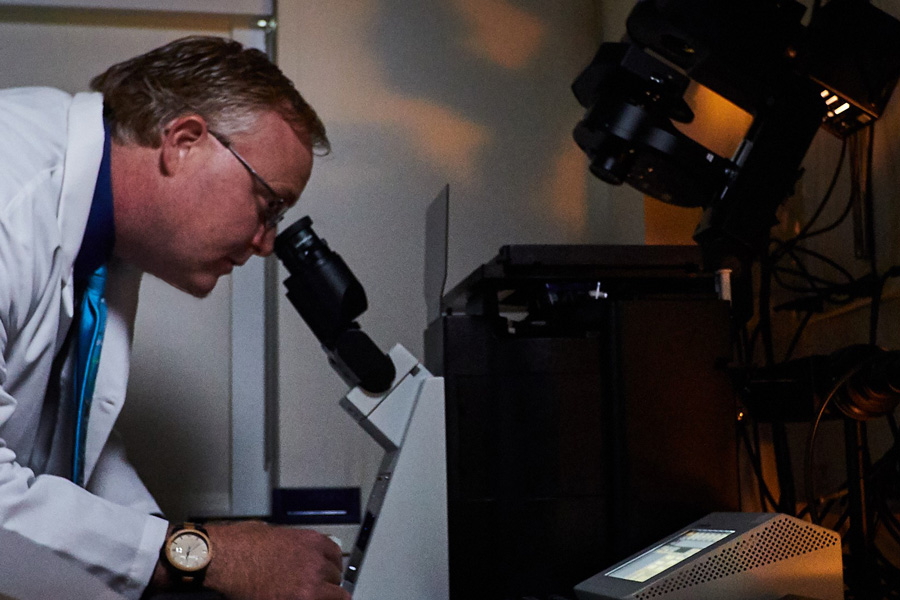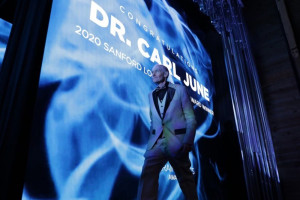Fox Chase Cancer Center Just Launched a New Institute for Cancer Epigenetics Research
The Cancer Epigenetics Institute aims to increase therapy options for cancer patients and to promote educational opportunities for students and faculty.

Johnathan Whetstine is the founding director of the Cancer Epigenetics Institute. Photograph courtesy Fox Chase Cancer Center
As Philly’s gene therapy scene continues to evolve, Fox Chase Cancer Center has announced that they’ve launched a professional organization dedicated to epigenetics, or the study of how your behavior and environment impacts gene expression. The local hub, which will be known as the Cancer Epigenetics Institute (CEI), will focus on promoting new discoveries in the field, mainly the ways DNA modifications (without changing the DNA sequence) might be used to create novel cancer therapeutics that help control how cancer cells react to their environments.
Johnathan Whetstine, founding director of CEI and co-program leader for the Cancer Signaling and Epigenetics (CSE) program at Fox Chase, says the mission of CEI is to facilitate discoveries in cancer epigenetics that can make clinical impact as fast as possible in order to better patient care and therapy responses. CEI will work to move lab-based observations to clinical settings, and from there, to actual treatments for patients. That way, physicians can better understand how to use new combinations of drugs and which drugs they may want to consider for certain patients. According to Fox Chase, the research and development efforts aim to “reduce the morbidity and mortality associated with cancer by focusing on biomarker research and therapeutic interventions,” including biomarkers of specific drug response and early detection of a range of cancers.
Additionally, Whetstine says that education is at the heart of CEI, as it is invested in academic and industry partnerships. “While we’re focused on epigenetics as it relates to cancer and making discoveries that move to patient delivery, we also want to do our part in seeing the next generation of scientists and science itself be born,” he says. “I believe if you really want to make an impact, you have to make people feel like they’re truly a part of that impact.”
In addition to center-wide collaborations between faculty, recruited students, and clinical colleagues, CEI will offer educational opportunities for institute members and the local community. For example, the institute’s “paper to the scientist” initiative hosts renowned scientists so that CEI students can expand their professional network and receive direct insight into the growing field. CEI is also running free symposiums in order to increase visibility and awareness surrounding cancer epigenetics to local and global industry constituents, as well as the general public. Their most recent symposium held virtually on March 2nd saw more than 1,000 attendees from 24 countries, Whetstine says.
Fox Chase recruited Whetstine from Massachusetts General Hospital in December of 2018. By fall of 2020, Whetstine says Fox Chase had the resources to turn their vision for an internationally-recognized institute for epigenetics research into a reality. Currently, the institute is composed of 18 faculty members across Fox Chase and Temple, and is actively running a faculty search and recruiting researchers.
Overall, Whetstine says an institute like this is needed because studying the epigenetic mechanisms driving cancer can help treat more patients more quickly — a process he describes as translating science to the bedside. “If you know how to control epigenetic mechanisms or know how to look at these functions, you can determine how to leverage these insights into epigenetics to better use immunotherapy, conventional chemotherapy, and to leverage novel drug combinations,” he says.


